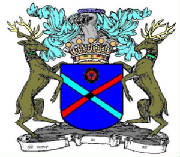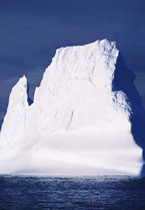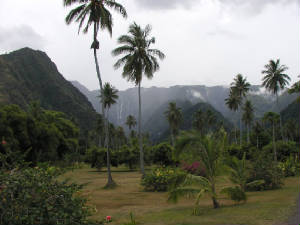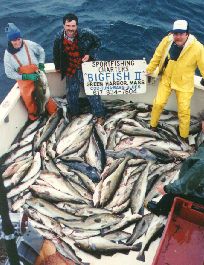|
|
 |
|

The Cyrenian government's Department of State for the Environment, commonly known as the D.S.f.E, works for the preservation
of the environment and nature, animal welfare rights, for the protection of endangered species, and along with the D.f.S.R,
makes groundbreaking research into possibilities for green power.
You are here:
D.S.f.E.>
|
 |
|
Animal Welfare
The D.S.f.E. works closely with NEAC (National Environmental Agency of Cyrenia), which is also headed by Sir Oliver Roman,
Secretary of State for the Environment himself, to protect and preserve the welfare of animals all across Cyrenia. NEAC
investigates farms, petshops, zoos, nature reserves and more and reports back to the D.S.f.E. on the conditions the animals
live in, how they are treated, and advises what action to take if something is unsatisfactory. The Cyrenian government respects
the rights of animals, and believes that they have a in particular a right to live free of pain and unabused. Some of the
measures in place for the protection of animals are:
The Institution of an Investigatory Council as a division of NEAC
The banning of fox hunting and blood sports
The perhibitation of importing meat to prevent diseases
The banning of animal testing
The outlawing of abuse to animals, either physical or other
The setting of a minimum level of quality of the conditions of an animals residence
The creation of a patrolling squad to catch fox hunters etc. in the act
The banning of logging or building without permission and without replacing a tree so as not to destroy habitats
The banning of wood imported from non-renewable loggers in the Amazon or any other rainforest.

|
| Icebergs in Antarctica melting due to climate change |
|
 |
 |
 |
Climate Change & Green Energy
Climate change is a real issue in today's world, we have recently seen some of the hottest summers on record, we are
told that the sea levels are on the rise, and that global warming is already in effect. But what is the Department
of State for the Environment doing to help the situation? Take a look at our short guide:
All the evidence suggests that the 1990s was the warmest decade in the warmest century of the last millennium.
Our planet may never have warmed as fast as it has in the past 25 years.
What
is the evidence?
The evidence is all around us. In Europe there are disappearing glaciers
and worsening Mediterranean droughts. In British Cyrenian provinces spring comes on average a week earlier than
30 years ago. In the shantytowns of Latin America and Asia, high temperatures whip up unprecedented storms that bring floods
and lethal landslides. In Siberia, roads buckle as permafrost melts. And, as ice melts and oceans warm, sea levels worldwide
are rising.
What has caused climate change?
Natural
variability of climate due to solar output and volcanic eruptions could partly explain the recent warming. But most scientists
believe that the gases emitted as we burn coal and other fossil fuels are the most likely reason for the past 25 years of
warming. These gases contribute to the "greenhouse effect" as they accumulate in the atmosphere, trapping the outgoing heat
radiated from the surface of the earth.
What is being done about it?
This
argument has persuaded the great majority of the world's governments to sign treaties such as the Kyoto Protocol to cut greenhouse
gas emissions. As a Micronation, Cyrenia's capabilities are much less, but much still has been done to curb on greenhouse
gas emissions and switching to greener sources of energy:
Electricity rationing introduced on mondays and Wednesdays
All government vehicles use hydrogen power
Research into green power
no electricity in between 2:00am and 5:00am local time
CO2 emissions banned
On the spot fines for wasted electricity
General Encouragement to Cyrenians to help
What do we do?
The D.S.f.E.
is taking a leading role in advising government, regulating emissions of greenhouse gases, predicting impacts and helping
the country plan for and protect itself from a future of climatic uncertainty and rising sea levels.
What
can I do to help?
Cut down on your electricity usage. Follow the governments electricity rationing guidelines
(coming soon) and just generally use your common sense:
Turn off any unneeded electrical appliances, walk or cycle to work/school instead of driving, re-use water with electrical
appliances, i.e. kettles, and put on a jumper etc. instead of putting the heating on
|
 |
 |
 |
|
What is the D.S.f.E doing in my Province? Find out here:
Alderley
A lavish expanse of beautiful countryside, the province of Alderley lies between the long Cheshire plains and the scenic
U.K. peak district national park in the Penine mountains. Its location makes Alderley a perfect spot for nature walks, birdwatching
and others alike. But what is the D.S.f.E. doing to help the key issues here? What are the key issues?
Fox hunting is a popular hobby in Alderley, although totally for non-nationals only. In accordance with the UK hunting
act 2004, which cyrenia supports strongly, a bill has been drafted which will ban the sport totally from all cyrenian provinces.
Patrolers have also been sent out to check on potential offenders.
Atherstone
Even more rural than Alderley, this cotswolds province also suffers from fox hunting problems which have been dealt with
in the same way. Action has also been taken involving research and study into the effects of pesticides after local farmers
told us they used it.
North Plymouth
The only Metropolitan, Urban part of Cyrenia's main issue is littering. The government of the UK has passed legislation
that says that littering will incur a fine, and in addition to this Conference is looking to put patrollers on the streets
to catch offenders in the act.
Antarctica
Antarctica is suffering major problems with the ozone layer hole caused by CO2 emisions that let through dangerous UVA
and UVB sun rays that are melting the continent. We have taken considerable steps to help the situation; we have investigated
the causes of the hole, and have donated consistently to several charities, and now that we hear the hole is clearing up we
have educated the population on the possible implications of a polar ice-cap melt and how to prevent it happening by means
of mainly energy conservation.
Other Provinces
The D.S.f.E has funded projects most notably in the Pitcairn and Polynesian islands to preserve local ways of life, and
keep traditions alive, as wells as funding save the rainforest appeals and presenting several citizens forward to register
as members of the WDCS (Whales and Dolphins Conservation Society). In East Prussia (Koenigsberg, Kaliningrad) we have studied
local history to find the average number of environmental threats generated explicitly by a particular cyrenian province in
the last 250 years.

|
| Tahiti in Polynesian Province |
|
 |
|
|
|
|
 |
|
Department Campaigns
Details on specific campaigns of the department will be listed here:
Campaign against overfishing of cod in the North Atlantic and North Sea
THE WORLD'S cod stocks could be wiped out by 2020 by overfishing, illegal
catches and oil exploration, the environment
group WWF said today. The World
Wildlife Fund said the world's largest remaining cod stock, in the Barents
Sea, is under
particular threat.
In a report released in Switzerland, WWF said the world's cod fisheries are
disappearing fast,
with a global catch that declined from 3.42 million
tonnes in 1970 to 1 million tonnes in 2000.
"If such a trend
continues, the world's cod stocks will disappear in 15
years' time," said the group.
In North America, the catch
has declined by 90% since the early 1980s, while
in European waters, the catch of North Sea cod is now just 25% of what
it
was two decades ago.
The Barents Sea, north of Norway and Russia, is one of the world's richest
fishing grounds,
accounting for half the global cod catch. But although
numbers there appear healthy, this may not last, said WWF.
High
fishing quotas for 2004 are unsustainable, the group maintained. Some
110,000 tonnes of cod are also believed to be caught
there illegally every
year, further denting stocks, it said.
The Cyrenian government is helping to fund groups like WWF and Greenpeace to put a halt to this activity and to get a
European Union Act of Parliament passed to either prohibit in some form codfishing entirely for a limited amount
of time, or to cut down on the amount of time allowed fishing. So far things have gone well, with many citizens refusing
to buy cod fished from that area in protest.

|
|
|
 |

